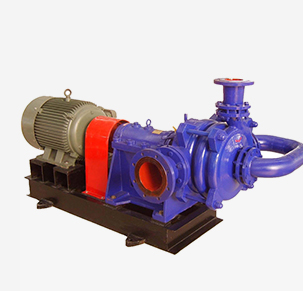Finnish
- Afrikaans
- Albanian
- Amharic
- Arabic
- Armenian
- Azerbaijani
- Basque
- Belarusian
- Bengali
- Bosnian
- Bulgarian
- Catalan
- Cebuano
- Corsican
- Croatian
- Czech
- Danish
- Dutch
- English
- Esperanto
- Estonian
- Finnish
- French
- Frisian
- Galician
- Georgian
- German
- Greek
- Gujarati
- Haitian Creole
- hausa
- hawaiian
- Hebrew
- Hindi
- Miao
- Hungarian
- Icelandic
- igbo
- Indonesian
- irish
- Italian
- Japanese
- Javanese
- Kannada
- kazakh
- Khmer
- Rwandese
- Korean
- Kurdish
- Kyrgyz
- Lao
- Latin
- Latvian
- Lithuanian
- Luxembourgish
- Macedonian
- Malgashi
- Malay
- Malayalam
- Maltese
- Maori
- Marathi
- Mongolian
- Myanmar
- Nepali
- Norwegian
- Norwegian
- Occitan
- Pashto
- Persian
- Polish
- Portuguese
- Punjabi
- Romanian
- Russian
- Samoan
- Scottish Gaelic
- Serbian
- Sesotho
- Shona
- Sindhi
- Sinhala
- Slovak
- Slovenian
- Somali
- Spanish
- Sundanese
- Swahili
- Swedish
- Tagalog
- Tajik
- Tamil
- Tatar
- Telugu
- Thai
- Turkish
- Turkmen
- Ukrainian
- Urdu
- Uighur
- Uzbek
- Vietnamese
- Welsh
- Bantu
- Yiddish
- Yoruba
- Zulu
Telephone: +86 13120555503
Email: frank@cypump.com
marras . 20, 2024 17:53 Back to list
africa slurry pump solutions
Africa Slurry Pump Solutions Meeting the Challenges of Diverse Industries
In recent years, African countries have witnessed a surge in industrial activities, driven by the demand for minerals, oil, gas, and agricultural products. This growth has brought with it a set of challenges, particularly in the management of slurry transportation. Slurry pumps play a vital role in the efficient movement of mixtures of liquid and solid materials in various industries, including mining, construction, and wastewater treatment. This article explores the significance of slurry pump solutions in Africa, their applications, and the innovations shaping the future.
Understanding Slurry Pumps
Slurry pumps are specifically designed to handle abrasive, corrosive, and high-density mixtures. Unlike traditional pumps, which are typically suitable for water or similar fluids, slurry pumps are engineered to tackle tough applications where the fluid contains solid particles. Key features of these pumps include robust construction, high wear resistance, and the ability to maintain performance under challenging conditions.
Applications in Diverse Industries
1. Mining and Mineral Processing One of the primary applications of slurry pumps in Africa is in the mining sector, where they transport ore slurries from the processing site to processing plants. The continent is rich in minerals such as gold, diamonds, and copper, making effective slurry management crucial in maximizing recovery rates and minimizing operational costs.
2. Construction In the construction industry, slurry pumps are utilized to remove excess water and sediments during excavations and tunneling operations. They are also employed in the transport of concrete slurries, ensuring that materials are delivered precisely where they are needed without compromising quality.
3. Wastewater Treatment As urbanization continues to rise in Africa, effective wastewater management becomes increasingly critical. Slurry pumps are integral to transporting sludge and other wastewater materials through treatment plants. Their efficiency in moving thick mixtures helps in meeting environmental regulations and improving public health outcomes.
Challenges Facing the Industry
While slurry pumps are indispensable, their implementation in Africa is not without challenges.
africa slurry pump solutions

- Infrastructure Deficiencies Many regions face inadequate infrastructure, which can lead to high maintenance costs and operational delays. Aging facilities and poor road networks can hinder the timely delivery and installation of slurry pump systems.
- Energy Costs The energy-intensive nature of slurry pumping can result in significant operational costs. As energy prices fluctuate, industries must seek more efficient pump designs and energy-saving technologies to reduce expenses.
- Skill Gap The industry also struggles with a shortage of skilled technicians capable of installing, maintaining, and repairing slurry pumps
. This gap can lead to downtime and increased operational risks for companies.Innovations on the Horizon
To address these challenges, the slurry pump industry in Africa is witnessing several innovations
- Advanced Materials Manufacturers are increasingly using advanced materials such as ceramics and specialty alloys that resist wear and corrosion. These materials extend the lifespan of pumps, ultimately leading to lower replacement costs.
- Smart Technology The integration of smart technologies into slurry pump systems is transforming operations. IoT-enabled pumps offer real-time monitoring and diagnostics, allowing operators to optimize performance and preemptively address maintenance needs.
- Energy-Efficient Designs New designs focusing on hydraulic efficiency are making slurry pumps more energy-efficient. Various manufacturers are investing in R&D to create pumps that maintain high performance while consuming less power.
Conclusion
Slurry pump solutions are critical to the growth and efficiency of multiple industries within Africa. By enhancing the performance and reliability of these pumps, companies can improve productivity and minimize operational challenges. As the continent continues to develop its industrial capabilities, the slurry pump industry is poised for significant transformation through innovation and technological advancement. Addressing existing challenges while embracing new solutions will ultimately pave the way for sustainable and efficient operations in the diverse sectors reliant on effective slurry management.
-
Heavy-Duty Mining Sludge Pumps - Wear-Resistant Slurry Handling
NewsAug.02,2025
-
Horizontal Split Case Pump with GPT-4 Turbo | High Efficiency
NewsAug.01,2025
-
ISG Series Pipeline Pump - Chi Yuan Pumps | High Efficiency, Durable Design
NewsAug.01,2025
-
Advanced Flue Gas Desulfurization Pump with GPT-4 Turbo | Durable & Efficient
NewsJul.31,2025
-
ISG Series Vertical Pipeline Pump - Chi Yuan Pumps | Advanced Hydraulic Design&Durable Construction
NewsJul.31,2025
-
ISG Series Vertical Pipeline Pump - Chi Yuan Pumps | Energy Efficient & Low Noise
NewsJul.31,2025










